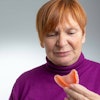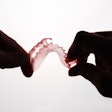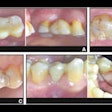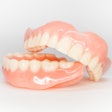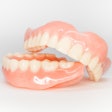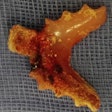Tooth loss and periodontal disease are predictors for poor cognitive function in older men, according to a study by researchers from the Boston University Henry M. Goldman School of Dental Medicine (Journal of the American Geriatrics Society, May 2010, Vol. 58:4, pp. 713-718).
It was one of the largest and longest prospective studies on the topic to date, according to the university.
The study followed 597 dentate men ages 28 to 70 for up to 32 years. The study participants -- veterans living in the Boston metropolitan area -- enrolled in the Veterans Administration Dental Longitudinal Study in the late 1960s and early 1970s and returned for medical, dental, and cognitive exams every three years.
Elizabeth Krall Kaye, Ph.D., M.P.H., and colleagues looked for patterns in dental records from 1970 to 1993 to determine if periodontal disease and tooth loss predicted whether people did well or poorly on cognitive tests. Oral examinations were conducted approximately every three years. Periodontal disease measures included probing pocket depth and radiographic alveolar bone height.
Participants underwent cognitive testing beginning in 1993 and took two cognitive tests. The first, the Mini-Mental State Examination, tests orientation, attention, calculation, recall, language, and motor skills. The second, a spatial copying test, asks participants to copy nine geometric designs ranging from easy to complex.
The researchers found that for each tooth lost per decade, the risk of doing poorly increased approximately 8% to 10%.
Inflammation is one possible cause, Kay noted. "Periodontal disease and caries are infectious diseases that introduce inflammatory proteins into the blood," she said in a press release. "There's a lot of circumstantial evidence that inflammation raises your risk of cognitive decline, and it could be that gum inflammation is one of the sources."
Copyright © 2010 DrBicuspid.com


